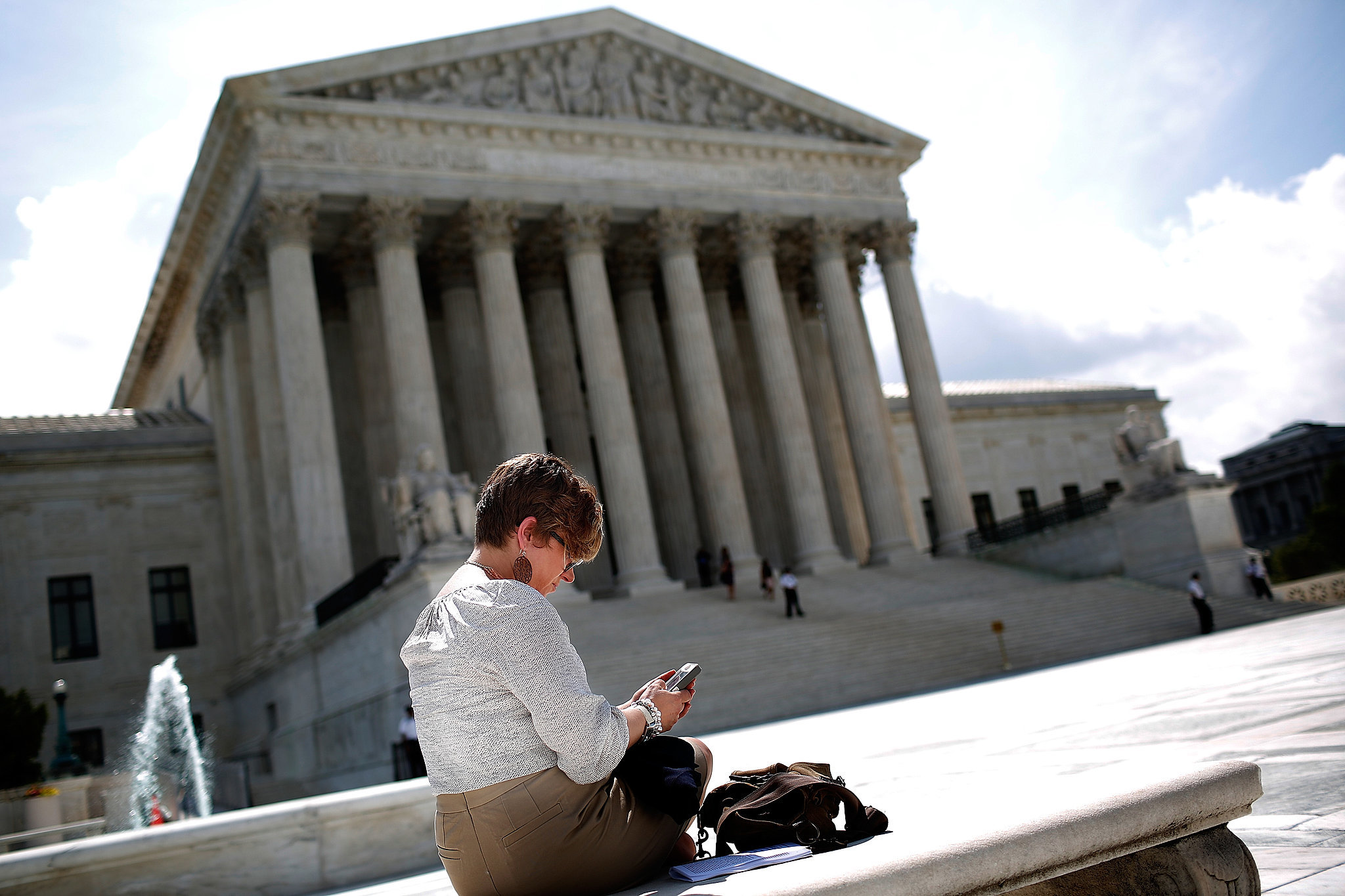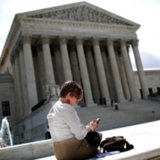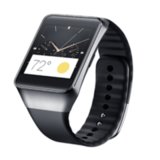Cell Phone Search Supreme Court Ruling
What Today's Huge Supreme Court Tech Rulings Mean For You

The Supreme Court came down with two important tech-related rulings on Wednesday, one on the privacy of data on your cell phone and the other on licensing and copyrights of media streamed online. Here's exactly how these landmark cases will affect you. Ready, set . . .
Your Cell Phone Is Safe
Police now need a warrant to search your cell phone in the event of an arrest, ruled the Supreme Court. The issue came up after two cases in which police used information found on cell phones to link plaintiffs to crimes. While some people argued that without a warrant, police could find evidence before it's destroyed, the Supreme Court came together unanimously in its decision. As with warrants for a home search, there are certain exceptions, such as when other people are in imminent danger, there's a chance evidence will be destroyed, or there's a possibility the suspect could flee.
"A cell phone search would typically expose to the government far more than the most exhaustive search of a house," Chief Justice John Roberts wrote. "A phone not only contains in digital form many sensitive records previously found in the home; it also contains a broad array of private information never found in a home in any form — unless the phone is."
It's true . . . we call it a phone, but the reality is with pictures, texts, and emails, it reveals so much more than just the numbers we dial.
Roberts even joked that cell phones "are now such a pervasive and insistent part of daily life that the proverbial visitor from Mars might conclude they were an important feature of human anatomy."
He's witty, that guy.
No Streaming TV Online
Don't even think about watching or recording TV shows over the Internet through a third-party service. Today the Supreme Court ruled against Aereo, the web TV start-up that streams broadcast TV via antennas without paying any program fees.
In a six-to-three decision, the court said that since Aereo acts as a cable TV company, it needs to pay up to copyright owners, which include networks like ABC or NBC who own the shows being streamed. All along, Aereo has argued that it functions more like a rental company.
Chet Kanojia, Aereo's founder and chief executive, called the ruling a setback for consumers. "We are disappointed in the outcome, but our work is not done," he said. "We will continue to fight for our consumers and fight to create innovative technologies that have a meaningful and positive impact on our world."
Bottom line is it's still legal to have your own digital antenna and digital recorder, but it's not legal for a service like Aereo to offer it and charge money for its use.



































































